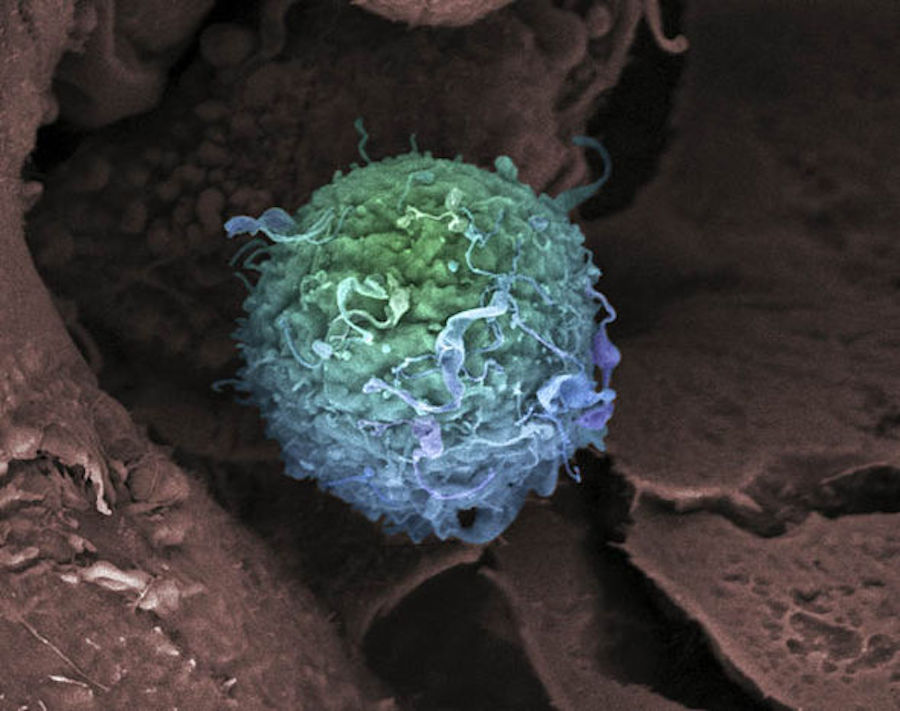Guiseppe Strangi and Case Western colleagues have developed a highly sensitive optical sensor, based on nanostructured metamaterials. The researchers claim that is is 1 million times more sensitive than current sensors, and capable of identifying a single lightweight molecule in a highly dilute solution. This could dramatically improve the detection of cancer and other diseases.
If doctors could detect a single molecule of an enzyme produced by circulating cancer cells, significantly earlier diagnosis is possible, which could dramatically improve one’s prognosis.
According to Strangi:”Very early, most circulating tumor cells express proteins of a very low molecular weight, less than 500 Daltons. These proteins are usually too small and in too low a concentration to detect with current test methods, yielding false negative results. With this platform, we’ve detected proteins of 244 Daltons, which should enable doctors to detect cancers earlier–we don’t know how much earlier yet.”
Wearable Tech + Digital Health San Francisco – April 5, 2016 @ the Mission Bay Conference Center
NeuroTech San Francisco – April 6, 2016 @ the Mission Bay Conference Center
Wearable Tech + Digital Health NYC – June 7, 2016 @ the New York Academy of Sciences
NeuroTech San Francisco – June 8, 2016 @ the New York Academy of Sciences
